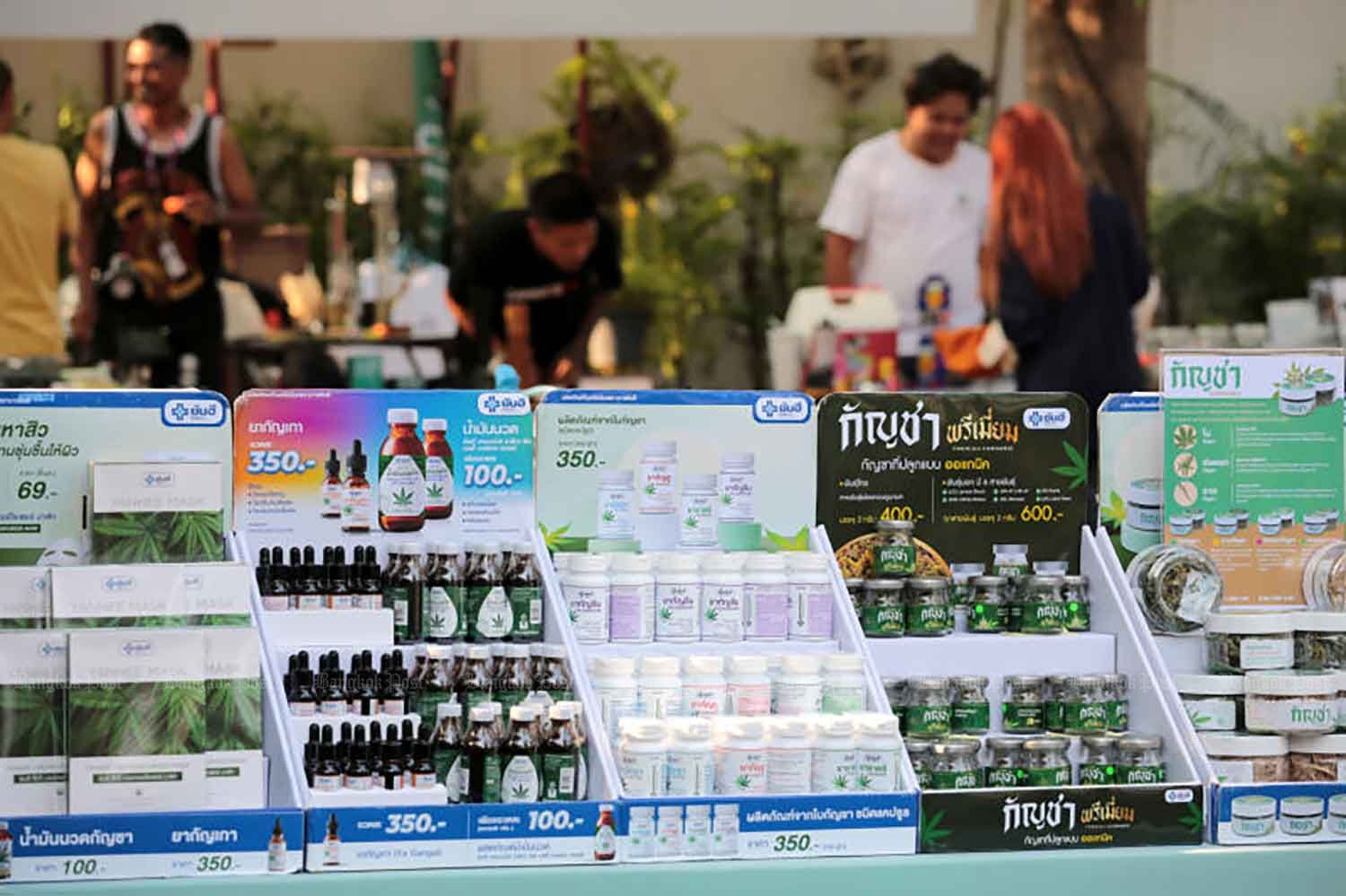High times: Thai cannabis use soars, sparking reclassification talks

The use of cannabis among young adults in Thailand has escalated tenfold in the past two years, drawing attention to the government’s plan to reclassify cannabis as a narcotic, according to the public health minister. The reclassification proposal is expected to be rooted in scientific evidence.
Health Minister Somsak Thepsuthin yesterday highlighted the significance of empirical data in addressing the rising cannabis consumption issue. The surge has been noted since the decriminalisation of the plant two years ago, leading to an influx of cannabis stores throughout the country. Consequently, this has sparked discussions regarding its impact on public health and crime rates.
Somsak referred to a study conducted by the Centre of Addiction Studies at Chulalongkorn University, indicating that the prevalence of cannabis usage among young adults has increased tenfold since its legalisation.
Furthermore, he referenced US research demonstrating that cannabis intake can diminish a user’s IQ by eight to nine points, a finding that has raised government concerns.
Regarding apprehensions of cannabis businesses about the potential policy shift, Somsak stated there needs to be a change.
“The decision of the Narcotics Control Board to delist cannabis at the time is not set in stone. If changes occur, they will be for the benefit of the people. I will invite all stakeholders to reach a consensus on the issue.”
Prime Minister Srettha Thavisin recently expressed his intention to reinstate cannabis on the narcotics list, albeit without providing a clear implementation plan.
Cannabis use
The Ministry of Public Health reserved judgment on the potential amendment to the cannabis law, stating that it first needs to confer with key stakeholders.
Supachai Jaisamut, an adviser to Deputy Prime Minister Anutin Charnvirakul and a member of the Bhumjaithai Party, said that the Srettha administration has clearly outlined a case for the continued medicinal and health use of cannabis.
The government also aims to augment the economic value of cannabis, a policy that has received unanimous agreement from all government parties, he added. Therefore, he suggests that the optimal solution would be to enact legislation regulating cannabis use.
He further suggested that the current 0.2% limit on tetrahydrocannabinol in cannabis products aligns with guidelines from drug agencies in the US and the EU, reported Bangkok Post.
In his opinion, Thailand should introduce a law to regulate cannabis use rather than reclassifying it as a narcotic. He added that the party has fulfilled its responsibility by drafting revised cannabis legislation and submitting it for parliamentary consideration, which should be endorsed by all parties.
Latest Thailand News
Follow The Thaiger on Google News:


























